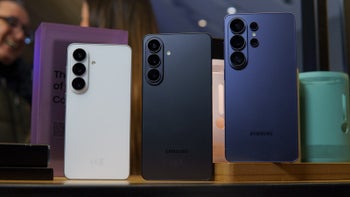This government no longer wants to open your iPhone's encrypted backdoor – so why are iCloud users still at risk?
US Director of National Intelligence Tulsi Gabbard is here with the good news.

For six months the UK has been trying to force Apple to open a "backdoor" to get access to encrypted data on iPhones, but now, the requests have been withdrawn. The good news comes from none other that US Director of National Intelligence Tulsi Gabbard, who made the announcement on X:
The so-called iPhone "backdoor" was first discussed publicly at the beginning of February and Gabbard says it would have "enabled access to the protected encrypted data of American citizens and encroached on our civil liberties".
Of course, this got US lawmakers fuming shortly after and the UK request drew strong criticism from both Republican and Democratic lawmakers in the United States. Members from both parties argued that the request could put Americans at risk. Their concern was twofold: not only could such a backdoor be exploited by malicious actors, but it would also grant UK authorities the ability to access encrypted data belonging to US users.
The lawmakers even warned that forcing Apple to weaken its software would undermine the privacy of federal, state, and local agencies that rely on Apple devices to handle sensitive or classified information. In their reported letter, they went as far as describing the UK's approach as tantamount to a foreign cyberattack carried out through political means.
A month ago, in mid-July, there were rumors that Britain might drop its iPhone-related requests, but it's only now that it's officially confirmed.
However, for UK Apple users, the situation is not particularly care-free. In February 2025, Apple was forced to disable Advanced Data Protection in the country, a feature that had provided end-to-end encryption for iCloud backups, photos, notes, reminders, and more.
Some categories, such as passwords, Messages, FaceTime, health data, Apple Card payments, and Safari browsing, remained fully encrypted. Still, the loss of protection for other types of data left users more vulnerable to government access and cyberattacks, undermining Apple's privacy-first stance.
Over the past few months, I’ve been working closely with our partners in the UK, alongside @POTUS and @VP, to ensure Americans' private data remains private and our Constitutional rights and civil liberties are protected.
— DNI Tulsi Gabbard (@DNIGabbard) August 19, 2025
As a result, the UK has agreed to drop its mandate for…
The so-called iPhone "backdoor" was first discussed publicly at the beginning of February and Gabbard says it would have "enabled access to the protected encrypted data of American citizens and encroached on our civil liberties".
Do governments actually want to spy on users en masse?
How's that even a question: of course!
89.36%
Maybe, I'm not sure.
10.64%
I have a complete faith in my government.
0%
The lawmakers even warned that forcing Apple to weaken its software would undermine the privacy of federal, state, and local agencies that rely on Apple devices to handle sensitive or classified information. In their reported letter, they went as far as describing the UK's approach as tantamount to a foreign cyberattack carried out through political means.
However, for UK Apple users, the situation is not particularly care-free. In February 2025, Apple was forced to disable Advanced Data Protection in the country, a feature that had provided end-to-end encryption for iCloud backups, photos, notes, reminders, and more.
Some categories, such as passwords, Messages, FaceTime, health data, Apple Card payments, and Safari browsing, remained fully encrypted. Still, the loss of protection for other types of data left users more vulnerable to government access and cyberattacks, undermining Apple's privacy-first stance.
Follow us on Google News














Things that are NOT allowed:
To help keep our community safe and free from spam, we apply temporary limits to newly created accounts: